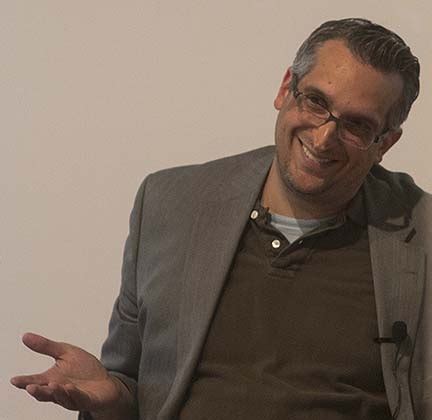A Quote by Terry Teachout
Virgil Thomson, the great classical music critic, who was also a composer, but said that criticism was the only antidote he knew to pay publicity. Critics at their best are independent voices people take seriously their responsibility to see as many things as they can see, put them in the widest possible perspective, educate their readers, I really do think of myself as a teacher. Newspapers that don't carry arts criticism at all while not fulfill this function. And probably their arts journalism will be deprived as a result.
Quote Topics
Also
Antidote
Arts
Best
Carry
Classical
Classical Music
Composer
Critic
Criticism
Critics
Deprived
Educate
Fulfill
Function
Great
Independent
Journalism
Knew
Many
Music
Myself
Newspapers
Only
Pay
People
Perspective
Possible
Publicity
Put
Readers
Really
Responsibility
Result
Said
See
Seriously
Take
Teacher
Them
Things
Think
Voices
While
Will
Related Quotes
I'm always very careful to make the distinction between music criticism and music journalism. A lot of people don't. But criticism doesn't require reporting. You can write criticism at home in your underwear. On the other hand, journalism takes legwork - you have to get out there and see things and talk to people.
Criticism will need an injection of humility that is, a recognition of its role as ancillary to the arts, needed only occasionally in a temporary capacity. Since the critic exists only for introducing and explaining, he must be readily intelligible; he has no special vocabulary: criticism is in no way a science or a system.
You find very few critics who approach their job with a combination of information and enthusiasm and humility that makes for a good critic. But there is nothing wrong with critics as long as people don't pay any attention to them. I mean, nobody wants to put them out of a job and a good critic is not necessarily a dead critic. It's just that people take what a critic says as a fact rather than an opinion, and you have to know whether the opinion of the critic is informed or uninformed, intelligent of stupid -- but most people don't take the trouble.
Oh, stuff the critics. I don't care. Too many people are snooty about classical. Look, I wasn't brought up in a home where we listened to classical music. It was a singing teacher that thought it would be best for my voice. Then I moved into crossover. And if that makes the music accessible to more people, then great.
Anyone who does investigative journalism is not in it for the money. Investigative journalism by nature is the most work intensive kind of journalism you can take on. That's why you see less and less investigative journalism at newspapers and magazines. No matter what you're paid for it, you put in so many man-hours it's one of the least lucrative aspects of journalism you can take on.
That was one of the big problems in the [Black Panther] Party. Criticism and self-criticism were not encouraged, and the little that was given often wasn’t taken seriously. Constructive criticism and self-criticism are extremely important for any revolutionary organization. Without them, people tend to drown in their mistakes, not learn from them.
If the mystical lovers of the arts, who consider all criticism dissection and all dissection destruction of enjoyment, thought logically, an exclamation like "Goodness alive!" would be the best criticism of the most deserving work of art. There are critiques which say nothing but that, only they do so more extensively.
Pedants make a great rout about criticism, as if it were a science of great depth, and required much pains and knowledge--criticism however is only the result of good sense, taste and judgment--three qualities that indeed seldom are found together, and extremely seldom in a pedant, which most critics are.
I don't think of myself as a critic or teacher either, but simply - and at the obvious risk of disingenuousness - as someone who teaches, writes drama criticism (and other things) and feels that the American compulsion to take your identity from your profession, with its corollary of only one trade to a practitioner, may be a convenience to society but is burdensome and constricting to yourself.
Performers put their heart and soul into their art, and can be subject to highly personal attacks and criticism. The tone and language of reviews, or commentary on social media, can be bruising and severe. Everyone is a critic. All of this adds to the stress and anxiety suffered by people in the performing arts.



































